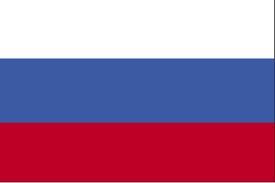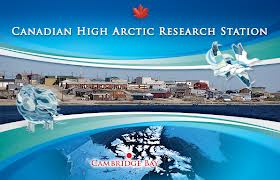|
|
|
|
|
|
|
|
No Arctic events are scheduled for today.
|
 [China] Vision for Maritime Cooperation Under the Belt and Road Initiative. [China] Vision for Maritime Cooperation Under the Belt and Road Initiative. Participating in Arctic affairs. China is willing to work with all parties in conducting scientific surveys of navigational routes, setting up land-based monitoring stations, carrying out research on climatic and environmental changes in the Arctic, as well as providing navigational forecasting services. China supports efforts by countries bordering the Arctic in improving marine transportation conditions, and encourages Chinese enterprises to take part in the commercial use of the Arctic route. China is willing to carry out surveys on potential resources in the Arctic region in collaboration with relevant countries, and to strengthen cooperation in clean energy with Arctic countries. Chinese enterprises are encouraged to join in sustainable exploration of Arctic resources in a responsible way. China will actively participate in the events organized by Arctic-related international organizations. XinhuaNet
What it's Like in the Cold, Dark, Isolated Coal Mines of the Arctic. Svalbard is a cold, dark and isolated island in the Arctic Ocean, situated midway between continental Norway and the North Pole. Norway and Russia are the only two nations with settlements there. Large-scale coal mining established communities in Svalbard during the 1920s, and its remains the main industry to this day. The mines on the Svalbard archipelago are the northernmost in the world. Its location means that the mine's operators have to deal with some unusual weather conditions; the summer months bring 24-hour daylight, while the winter months are in total darkness and temperatures can plummet below 40 degrees Fahrenheit. The Washington Post  Russia Creating Advanced Amphibious Ship for Arctic. Russia Creating Advanced Amphibious Ship for Arctic. Russia is creating an advanced amphibious ship designed for the Arctic, Director General of the Nevskoye design bureau Sergey Vlasov told TASS at the 8th International Maritime Defense Show in St. Petersburg. "These are our initiated works for the future. We cannot make any headway and we suggest them for the Fleet...A vessel may be developed that may go to the Arctic and make a landing at an ice floe," he said. TASS The GEBCO-NF Team Advance to Round 1 of the Shell Ocean Discovery XPRIZE. The GEBCO-NF Alumni Team is one of up to 21 teams that will compete in Round 1 field tests of the $7 Million Shell Ocean Discovery XPRIZE competition in October and November this year; the competition's semi-final stage. The Shell Ocean Discovery XPRIZE is a global competition with the aim of advancing deep-sea technologies for autonomous, fast and high-resolution ocean exploration. The GEBCO-NF Alumni Team is led by alumni of the Nippon Foundation / General Bathymetric Chart of the Oceans (GEBCO) Postgraduate Certificate in Ocean Bathymetry Training Programme, now in its thirteenth year, run at the Centre for Coastal and Ocean Mapping at the University of New Hampshire. GEBCO is the only organization with a mandate to map the entirety of the world's ocean floors. GEBCO  Canada Day Events Galore in Cambridge Bay, but no CHARS Opening. Canada Day Events Galore in Cambridge Bay, but no CHARS Opening. If you're in the western Nunavut town of Cambridge Bay July 1, you'll find many events planned to celebrate Canada's 150th birthday. But there's one major event that is not included on the list of activities for the day: the opening of the Canadian High Arctic Research Station. CHARS, with a price tag of $204 million, was slated to open July 1, 2017, with all the fanfare of Canada's 150th and a visit from Prime Minister Justin Trudeau. Nunatsiaq Online Russia to Create Northern Sea Route Agency. A specialized organization for the development of the Northern Sea Route will be set up in Russia, Minister for the Development of the Russian Far East Alexander Galushka said during a meeting between Russian Deputy Prime Minister Yury Trutnev and Chinese Vice Premier Wang Yang, the press service of the Ministry for the Development of the Russian Far East reported on June 30. Galushka did not specify when the new agency would be created, its principles or where it would be headquartered. The Arctic Scots Researchers Lead Expedition to Study Ocean Ice. Scottish scientists are heading a pioneering scientific research expedition to discover how climate change is affecting the Arctic ocean. The aim of the £10 million mission is to gain new insights into the repercussions of rapid warming and the melting of sea ice in the polar region. Researchers from the Scottish Association for Marine Science (Sams), based in Oban, are leading investigations alongside colleagues from the universities of Leeds and Liverpool. They are among more than 20 academics from 16 UK institutions who will be on board the research ship James Clark Ross, which sets sail for a six-week voyage to the Barents Sea today. The Scotsman Arctic Research Lab to be Mothballed as Federal Grant Expires, Dal Physicist Says. The Nova Scotia-based physicist who runs a research station almost as far north in Canada as you can get says he is preparing to mothball the facility as the expiration date for a major source of federal funding draws near. Dalhousie University's James Drummond is the principal investigator at the Polar Environment Atmospheric Research Laboratory (PEARL) on Ellesmere Island, Nunavut, approximately 1,100 kilometres from the North Pole. The facility is one of only a handful of research labs in the High Arctic. "It is rather like being on another planet, without having to go through the space travel bit," Drummond said. CBC News
|
|
Future Events
The 2nd Asian Conference on Permafrost, July 2-6, 2017 (Sapporo, Japan). Delegates will participate in state-of-the-art oral and poster presentations in the modern city of Sapporo (host of the 1972 Winter Olympics). Field trips will visit marginal and extrazonal mountain permafrost sites that support unique geo-eco-hydrological features. All aspects of frozen ground research will be covered, from needle ice to deep permafrost, from frozen ground engineering in cities to permafrost on volcanoes, and from links between frozen ground and ancient cultures to present-day outreach. Plan now to enjoy science and engineering, excellent food, and unique field trips in Sapporo.
107th Commission Meeting of the US Arctic Research Commission. July 17, 2017(Washington, DC USA). The U.S. Arctic Research Commission will hold its 107th meeting in Washington, DC, on July 17, 2017. The business sessions, open to the public, will convene at 8:30 am at the Naval Heritage Center, 801 Pennsylvania Avenue, NW, Washington, DC 20004. The focus of this meeting will include reports and updates on programs and research projects affecting Alaska and the greater Arctic.
This biennial symposium, co-hosted by U.S. National/Naval Ice Center (NIC) and the US Arctic Research Commission (USARC) focuses on a broad cross-section of naval and maritime operations and issues in an "ice-free Arctic." The symposium brings together nationally and internationally recognized experts on Arctic marine operations, infrastructure, science, environmental observations, and on a wide range of other topics. Registration is FREE. For the first time, the event will be webcast live, enabling broader participation. The detailed program is available online here. The speaker program is full, but opportunities exist to present posters. Poster submission details here. Over 50 confirmed speakers, including:
 |
|  | Sen. Dan Sullivan |
|
|  | | Sen. Lisa Murkowski |  |
 2017 University of the Arctic Rectors' Forum and Conference, August 27-29, 2017 (Aberdeen, Scotland). This conference will also consider how northern scholarship can add to discussions on the North into broader terrains of intellectual engagement. In so doing, it will challenge dominant paradigms of research in both the natural and the social sciences, above all by calling into question the very separation of the world of nature from that of human society which underwrites the distinction between these two branches of scientific inquiry. In its place the conference will seek to forge a new practice of interdisciplinary research, done in collaboration with northern residents and on their terms, which recognizes that every discipline is itself an ongoing conversation, or a way of knowing, rather than a compartment within an overarching, hierarchically organized system of knowledge. Conversations from the North will, then, help to generate a science that is more open-ended, responsive to environmental variation and respectful of the wisdom of inhabitants. 2017 University of the Arctic Rectors' Forum and Conference, August 27-29, 2017 (Aberdeen, Scotland). This conference will also consider how northern scholarship can add to discussions on the North into broader terrains of intellectual engagement. In so doing, it will challenge dominant paradigms of research in both the natural and the social sciences, above all by calling into question the very separation of the world of nature from that of human society which underwrites the distinction between these two branches of scientific inquiry. In its place the conference will seek to forge a new practice of interdisciplinary research, done in collaboration with northern residents and on their terms, which recognizes that every discipline is itself an ongoing conversation, or a way of knowing, rather than a compartment within an overarching, hierarchically organized system of knowledge. Conversations from the North will, then, help to generate a science that is more open-ended, responsive to environmental variation and respectful of the wisdom of inhabitants.
- Small and off-grid community energy solutions
- Oil and gas development
- Renewable energy
- Regulation and Financing
- Transportation and transmission
The AES is a multi-disciplinary event expected to draw several hundred industry officials, scientists, academics, policy makers, energy professionals and community leaders together to collaborate and share leading approaches on Arctic energy issues.
2017 Arctic Circle Assembly, October 13-15, 2017 (Reykjavik, Iceland). The annual Arctic Circle Assembly is the largest annual international gathering on the Arctic, attended by more than 2000 participants from 50 countries. The Assembly is held every October at the Harpa Conference Center and Concert Hall and is attended by heads of states and governments, ministers, members of parliaments, officials, experts, scientists, entrepreneurs, business leaders, indigenous representatives, environmentalists, students, activists and others from the growing international community of partners and participants interested in the future of the Arctic.
 Polar Law Symposium 2017 and Rovaniemi Arctic Spirit, November 13-16, 2017 (Rovaniemi, Finland). The purpose of the Polar Law Symposium is to examine, in detail, the implications of the challenges faced by the Polar Regions for international law and policy and to make recommendations on appropriate actions by states, policy makers and other international actors to respond to these emerging and re-emerging challenges. The Rovaniemi Arctic Spirit Conference is integrated with the Polar Law Symposium, which will be organized by the Northern Institute for Environmental and Minority Law at the Arctic Center of the University of Lapland. Polar Law Symposium 2017 and Rovaniemi Arctic Spirit, November 13-16, 2017 (Rovaniemi, Finland). The purpose of the Polar Law Symposium is to examine, in detail, the implications of the challenges faced by the Polar Regions for international law and policy and to make recommendations on appropriate actions by states, policy makers and other international actors to respond to these emerging and re-emerging challenges. The Rovaniemi Arctic Spirit Conference is integrated with the Polar Law Symposium, which will be organized by the Northern Institute for Environmental and Minority Law at the Arctic Center of the University of Lapland.
ISAR-5 Fifth International Symposium on Arctic Research, January 15-18, 2017 (Tokyo, Japan). The fifth ISAR has been planned at the recommendation of the science steering committee of ISAR-4, which was held in Toyama, Japan in April 2015. The fifth ISAR will be devoted to discussions on environmental changes in the Arctic and their regional and global implications, to seek additional international scientific collaboration in this area by gathering, synthesizing and sharing information related to these changes occurring in the Arctic. Special emphasis will be placed on the fields of the social sciences and humanities, which were not included in the previous ISARs. ISAR-5 will consist of general sessions and special sessions. The general sessions will address the following topics: atmosphere; ocean and sea ice; rivers, lakes, permafrost, and snow cover; ice sheets, glaciers, and ice cores; terrestrial ecosystems; marine ecosystems; geospace; policies and economy; and social and cultural dimensions. Special sessions will be solicited on cross-cutting themes.
The Effects of Climate Change on the World's Oceans, June 4-8, 2018 (Washington, DC USA).
The 4th International Symposium will bring together experts from around the world to better understand climate impacts on ocean ecosystems - and how to respond. The event is hosted by a variety of groups including International Council for the Exploration of the Sea (ICES), North Pacific Marine Science Organization (PICES), Intergovernmental Oceanographic Commission of UNESCO (IOC), and Food and Agriculture Organization of the United Nations (FAO).
 POLAR 2018, June 15-27, 2018 (Davos, Switzerland). POLAR2018 is a joint event from the Scientific Committee on Antarctic Research (SCAR) and the International Arctic Science Committee (IASC). The SCAR meetings, the ASSW and the Open Science Conference will be hosted by the Swiss Federal Institute for Forest, Snow and Landscape Research WSL under the patronage of the Swiss Committee on Polar and High Altitude Research. The WSL Institute for Snow and Avalanche Research SLF is organizing POLAR2018. POLAR 2018, June 15-27, 2018 (Davos, Switzerland). POLAR2018 is a joint event from the Scientific Committee on Antarctic Research (SCAR) and the International Arctic Science Committee (IASC). The SCAR meetings, the ASSW and the Open Science Conference will be hosted by the Swiss Federal Institute for Forest, Snow and Landscape Research WSL under the patronage of the Swiss Committee on Polar and High Altitude Research. The WSL Institute for Snow and Avalanche Research SLF is organizing POLAR2018.
Arctic Biodiversity Congress, October 9-11, 2018 (Rovaniemi, Finland). The second Arctic Biodiversity Congress is hosted by the Conservation of Arctic Flora and Fauna (CAFF), the biodiversity working group of the Arctic Council, and the Ministry of the Environment, Finland. The second Arctic Biodiversity Congress will build on the success of the first Congress, held in 2014 in Trondheim, Norway, and will bring together scientists, policymakers government officials, Indigenous representatives, Traditional Knowledge holders, industry, non-governmental organizations, and others to promote the conservation and sustainable use of Arctic biodiversity.
|
|

  
4350 N. Fairfax Drive, Suite 510
Arlington, VA 22203, USA
External links in this publication, and on the USARC's World Wide Web site ( www.arctic.gov) do not constitute endorsement by the US Arctic Research Commission of external Web sites or the information, products or services contained therein. For other than authorized activities, the USARC does not exercise any editorial control over the information you may find at these locations. These links are provided consistent with the stated purpose of this newsletter and the USARC Web site.
|
|
|
|
|
|
|
|
|